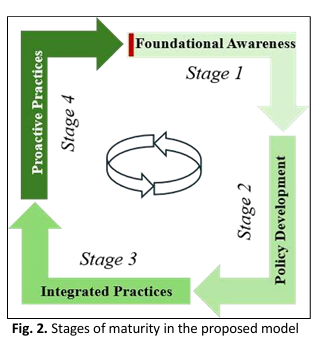Enhancing Big Data Governance Practices: Addressing Security, Privacy and Ethical Challenges
DOI:
https://doi.org/10.37934/ard.142.1.159176Keywords:
Big Data, big data governance, ethical concerns, maturity assessment modelAbstract
The exponential growth of data from diverse sources has amplified the challenges of managing security, privacy, and ethical concerns in big data governance. Organizations face significant risks related to data breaches, regulatory compliance, and ethical dilemmas, necessitating robust governance frameworks. This study examines the state of BDG practices in data-driven organizations, focusing specifically on security, privacy, and ethical concerns. Through a systematic literature review of 53 peer-reviewed articles published between 2019 and 2024, the study identifies critical gaps and opportunities in current governance practices. The findings reveal that while BDG practices enhance data security, ensure compliance, and foster ethical accountability, organizations struggle with fragmented frameworks, insufficient scalability, and a lack of unified strategies for addressing interconnected challenges. To bridge these gaps, this study proposes the Security, Privacy, and Ethical Concerns Maturity Assessment Model (SPEC MAM), which evaluates governance maturity across four dimensions: Security, Privacy, Ethical Concerns, and Integrated Concerns. The model categorizes maturity into four progressive stages: Foundational, Policy Development, Integrated Practices, and Proactive, providing organizations with a structured approach to assess and enhance governance maturity. While the model offers a systematic framework for addressing BDG challenges, its real-world application and scalability remain areas for further exploration. This study contributes to academia and practice by advancing BDG research and equipping organizations with actionable strategies to address security, privacy, and ethical concerns in an increasingly complex data landscape.
Downloads























